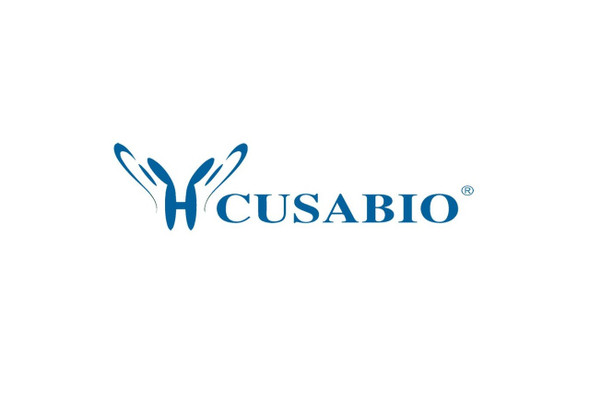Cusabio Active Proteins
Recombinant Mouse C-C motif chemokine 5 protein (Ccl5) (Active) | CSB-AP001241MO
- SKU:
- CSB-AP001241MO
- Availability:
- 5 to 10 Working Days
Description
Recombinant Mouse C-C motif chemokine 5 protein (Ccl5) (Active) | CSB-AP001241MO | Cusabio
Protein Description: Full Length of Mature Protein
Alternative Name (s) : MuRantes, Small-inducible cytokine A5, T-cell-specific protein RANTES
Gene Names: Ccl5,Scya5
Research Areas: Immunology
Species: Mus musculus (Mouse)
Source: E.Coli
Tag Info: Tag-Free
Expression Region: 24-91aa
Sequence Info: SPYGSDTTPC CFAYLSLALP RAHVKEYFYT SSKCSNLAVV FVTRRNRQVC ANPEKKWVQE YINYLEMS
Biological Activity: Fully biologically active when compared to standard. The biological activity determined by a chemotaxis bioassay using human T lymphocytes is in a concentration range of 1.0-10 ng/ml.
MW: 7.9 kDa
Purity: >97% as determined by SDS-PAGE and HPLC.
Endotoxin: Less than 1.0 EU/µg as determined by LAL method.
Relevance: Chemoattractant for blood monocytes, memory T-helper cells and eosinophils. Causes the release of histamine from basophils and activates eosinophils. May activate several chemokine receptors including CCR1, CCR3, CCR4 and CCR5. May also be an agonist of the G protein-coupled receptor GPR75. Together with GPR75, may play a role in neuron survival through activation of a downstream signaling pathway involving the PI3, Akt and MAP kinases. By activating GPR75 may also play a role in insulin secretion by islet cells. {ECO:0000250|UniProtKB:P13501}.
PubMed ID: 1375672; 1376260; 7507961; 7513046; 10438970; 16141072; 15489334
Notes: Repeated freezing and thawing is not recommended. Store working aliquots at 4℃ for up to one week.
Function: Chemoattractant for blood monocytes, memory T-helper cells and eosinophils. Causes the release of histamine from basophils and activates eosinophils. May activate several chemokine receptors including CCR1, CCR3, CCR4 and CCR5. May also be an agonist of the G protein-coupled receptor GPR75. Together with GPR75, may play a role in neuron survival through activation of a downstream signaling pathway involving the PI3, Akt and MAP kinases. By activating GPR75 may also play a role in insulin secretion by islet cells.
Involvement in disease:
Subcellular Location: Secreted
Protein Families: Intercrine beta (chemokine CC) family
Tissue Specificity: T-cell and macrophage specific.
Paythway:
Form: Lyophilized powder
Buffer: Lyophilized from a 0.2 μm filtered concentrated solution in 30 % Acetonitrile and 0.1 % TFA
Reconstitution: We recommend that this vial be briefly centrifuged prior to opening to bring the contents to the bottom. Please reconstitute protein in deionized sterile water to a concentration of 0.1-1.0 mg/mL.We recommend to add 5-50% of glycerol (final concentration) and aliquot for long-term storage at -20℃/-80℃. Our default final concentration of glycerol is 50%. Customers could use it as reference.
Uniprot ID: P30882
Uniprot Entry Name: CCL5_MOUSE
HGNC Database Link: N/A
UniGene Database Link: UniGene
KEGG Database Link: KEGG
STRING Database Link: STRING
OMIM Database Link: N/A









